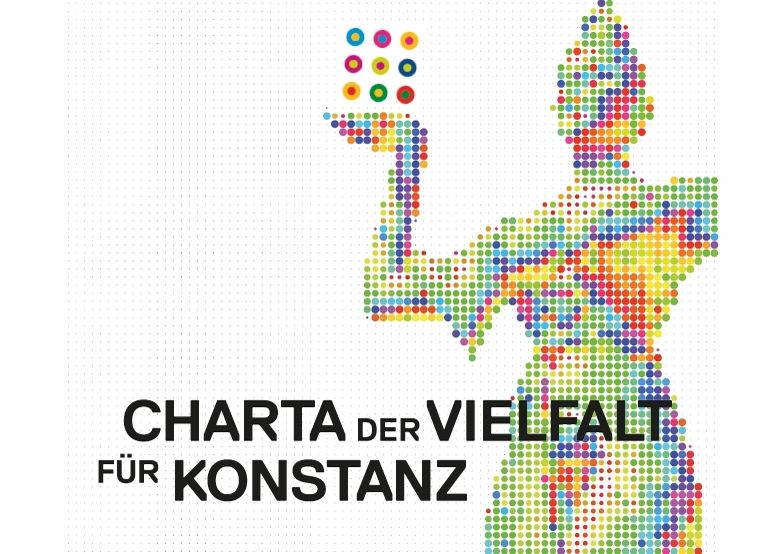Diversity Charter
The University of Konstanz recognises, values and promotes diversity in all its institutions. It strives to provide a working, learning and living environment that is free from prejudice and discrimination and which guarantees equal access to learning and development opportunities for all. An English translation of this charter will be available soon.
Charter “Familie in der Hochschule" (family at the university)
The University of Konstanz' special approach lies in the need-based development of the specific offers for students, researchers, teachers and employees with family tasks and in the connection of institutional and individual offers. The latter is reflected in the family orientation model of the University of Konstanz. “Family” here encompasses all communities in which people permanently assume responsibility for one another.
Code of Practice on Diversity
Three central aspects shape diversity at the university: we acknowledge diversity, we ensure that all members can fully participate in university life and we work to prevent discrimination.
Dual Career Policy
Since 2007, the University of Konstanz has recognized and supported the importance of working couples in our research community. Building on these efforts, the university introduced its Dual Career Policy in 2011.
Code of Practice on Gender Equality
The Code of Practice on Gender Equality represents the University of Konstanz’s self-commitment to ensuring gender equality. The university has thereby established stringent standards in ten focus areas which are binding for all academic and administrative areas of the university.
Code of Practice on the Prevention of Corruption
Corruption is a very sensitive issue that must be dealt with in a responsible way. The University of Konstanz has therefore decided to follow a recommendation from the Ministry of Science, Research and the Arts to publish the Code of Practice on the Prevention of Corruption, which was issued by the Ministry of the Interior, Digitisation and Migration. It is aimed at all members of staff , line managers and administrative management staff in the state of Baden-Württemberg. An English translation of the Code of Practice will be available soon. Please note that the German version of this document is the only legally binding version.
Code of Practice for Effective Teaching
The University of Konstanz strives to provide its members the best possible conditions for study, teaching and research. Its Code of Practice for Effective Teaching describes its understanding of study and teaching. In line with the university’s mission statement, the code defines the goals and guiding principles which apply to all study programmes and are based on the guidelines of the Qualifications Framework for German Higher Education and the criteria for the accreditation of study programmes.
Konstanz Code of Practice for Researchers between Doctoral Studies and Professorship
The University of Konstanz's guidelines and standards that apply to junior researchers are set out in the “Konstanz Code of Practice for Researchers between Doctoral Studies and Professorship”. It provides the basis for both the department-specific objectives as well as the evaluation regulations for junior professorships.
Code of Human Resource Development
Human resources development helps both the university and its employees realise strategic and individual development objectives. The human resources development strategy is aimed at all academic or research support staff working at the University of Konstanz. It defines our conception of human resources development, including relevant target groups and actors, and identifies fields of action as well as appropriate measures.
Code of Practice for Doctoral Researchers at the University of Konstanz
The Code of Practice for Doctoral Researchers at the University of Konstanz serves as both recommendation and guide. Supplementing the University of Konstanz's doctoral regulations, it sets out guidelines and standards for both doctoral researchers and their supervisors.
Transfer strategy
In its meeting on 7 February 2024, the University of Konstanz's Senate adopted a new transfer strategy. The aim of adopting an official transfer strategy is to establish a shared understanding of transfer at the university, to strengthen the transfer of research-based knowledge, innovations and technologies between the university and society, and to foster a vibrant transfer culture at the university.

